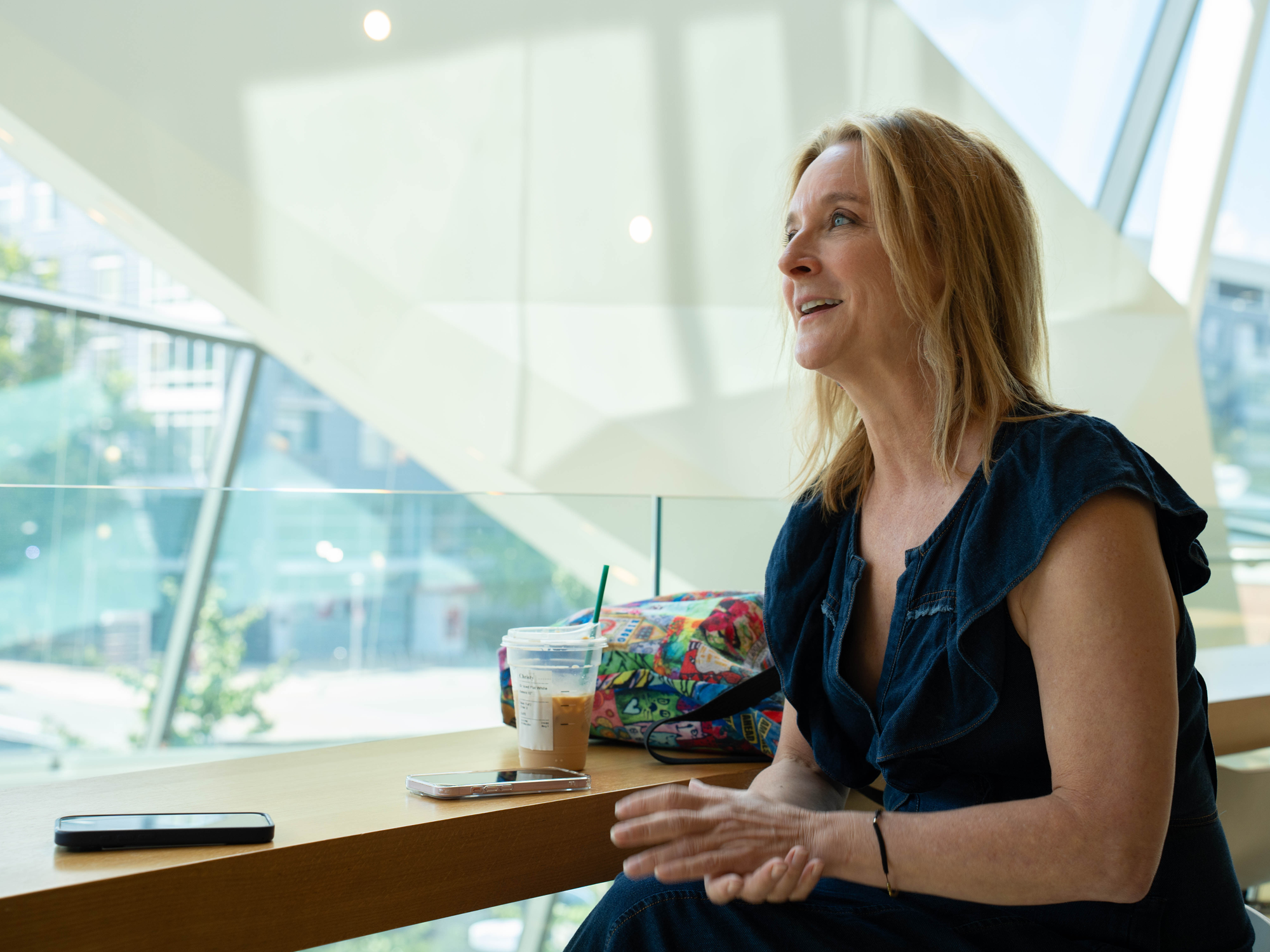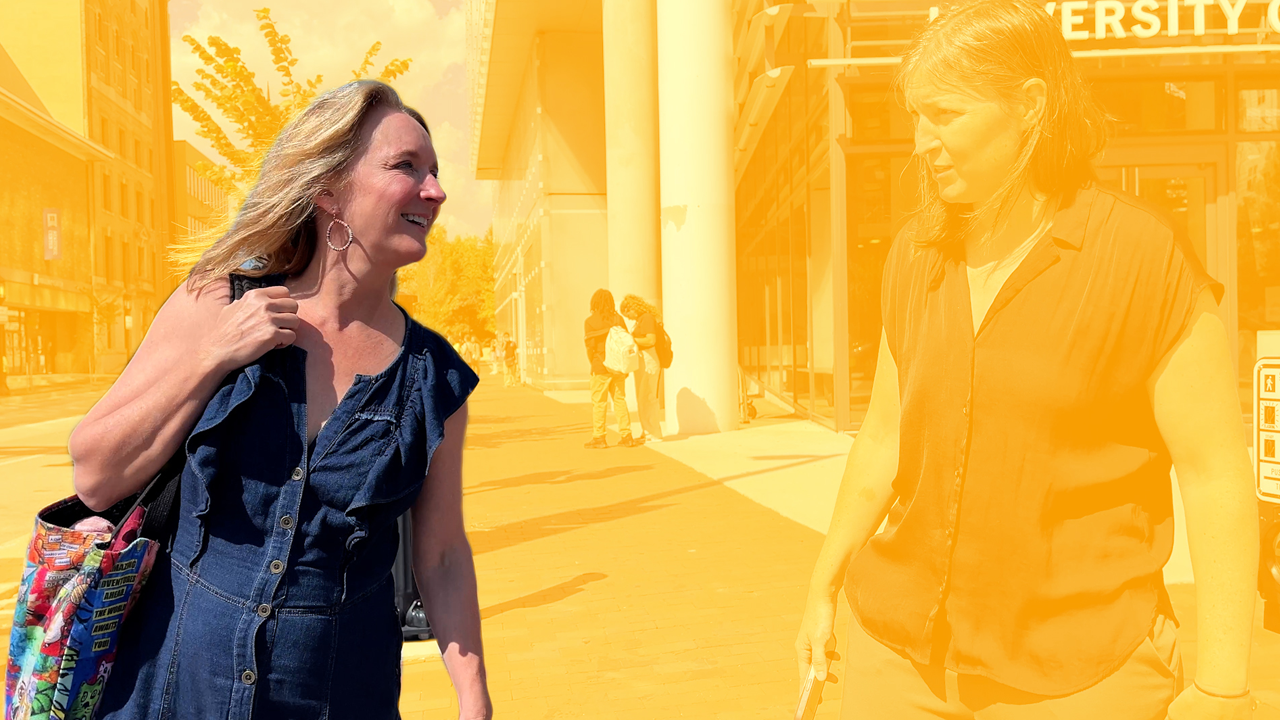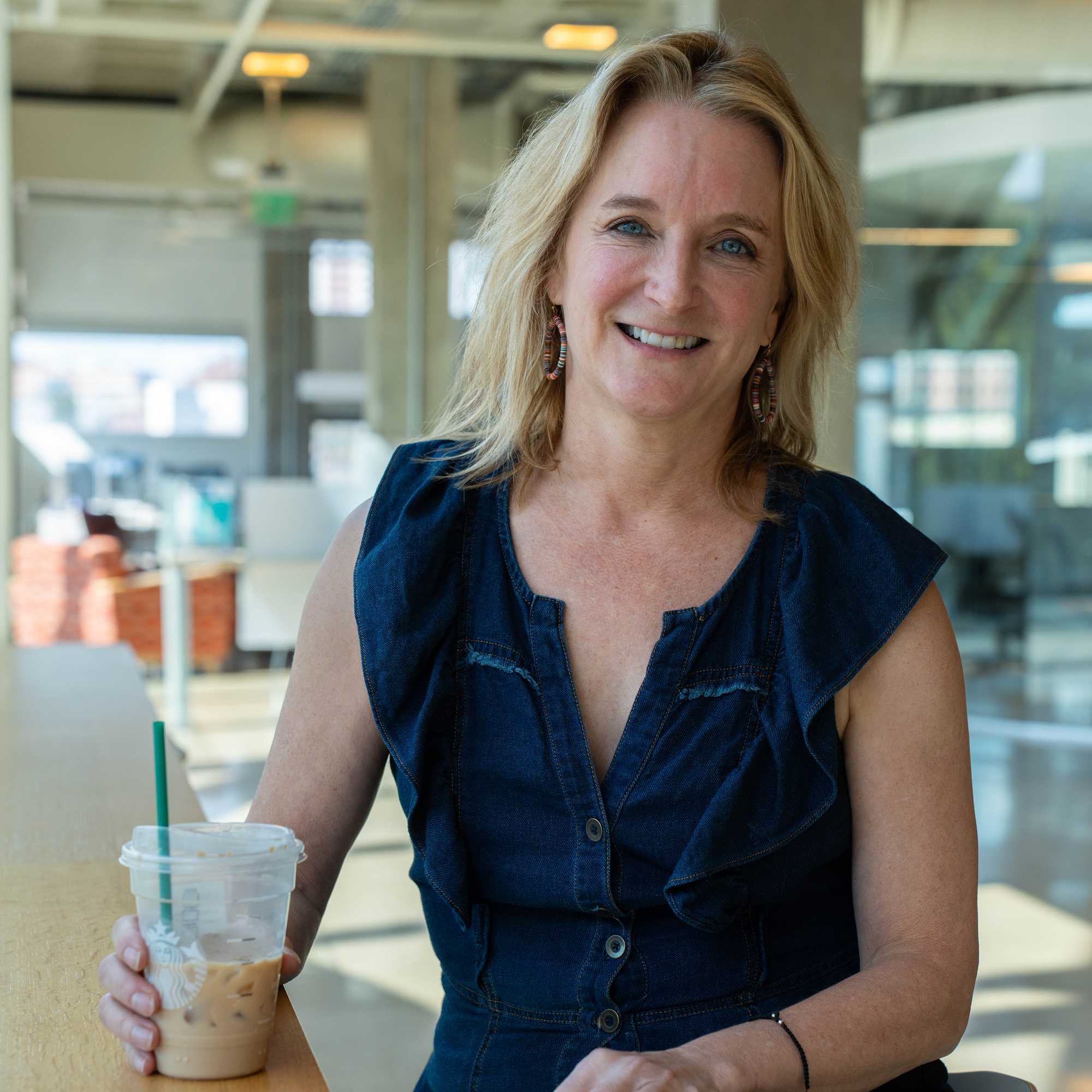
Kimberly Wehle joined The University of Baltimore School of Law as professor in 2009, bringing a depth of teaching and legal experiences with her.
Students know her for her expertise in administrative law, federal courts and civil procedure, and her interest in separation of powers questions. Wehle has practiced before the U.S. Supreme Court and argued several cases in the U.S. Court of Appeals for the D.C. Circuit.
Beyond UBalt Law, Wehle is an author of four books and a frequent guest speaker and legal contributor for several news organizations including ABC, NPR, CNN, MSNBC, PBS, The Atlantic, Politico and The Hill.
Additionally, she received the University of Maryland System Board of Regents Faculty Award for excellence in scholarship in 2020 and the law school’s Faculty Award for Public Discourse Scholarship in 2021.
After grabbing a flat white at Starbucks on UBalt’s campus, Wehle shared about where her love for Constitutional law started and how modern politics have reshaped how—and to whom—she’s taught it.
Q: How did you get into constitutional law, both studying and teaching it?
A: I’ve always been interested in the separation of powers, which is the respective roles of the president, the United States, Congress and judges, because that balance of power is how every American has or does not have their rights. And what does a right mean? It means something that you can go and enforce if the government takes something from you. That’s all it is.
A right isn’t something that you’re born with; it’s something that is an aspect of American life that is protected by a system that functions. That’s always been theoretically interesting to me, and practically interesting because it affects everybody’s life. Then in the last 10 years, the Constitution has become, for better or worse, sexy and screaming from the headlines pretty much every week.
I’m not a long-term goal setter; I’m a person that pays attention to what I find curious and what works for my life. Then I embrace and move toward that. It wasn’t a decision out of undergrad or out of law school that this is what I want to do, but this is just naturally where my interest, and now my passion, has drawn me.


Q: Your books make difficult subjects accessible for everyone. Tell us about deciding to make this approach of simplifying difficult subjects, and how you’ve chosen your topics.
A: My research for years was about the beginning and end of the Constitution when it comes to private corporations and the actual government. When the government hands off power to a private contractor, does the Constitution have anything to say about that? Because the Constitution is what protects us from the government being a bully.
Long story short, I was invited to write a book for Cambridge University Press compiling all those articles into a book. Then Donald Trump took office for the first time, and I realized I was literally writing a different book, which was a book about translating complex, theoretically rich, legal concepts into plain English that non-lawyers and maybe non-law students can understand. There really was a need for that.
It’s the first time in my lifetime that these constitutional principles, not just the law, but why we have a Constitution, became so crucial to understanding the day-to-day news. I made a book proposal, and HarperCollins took my first book, How to Read the Constitution and Why, in 24 hours, which is pretty unusual in the publishing business, especially with a publishing house of that caliber, but I think we were both onto a pressing need for civic education that has just expanded.
From there, I came to this conclusion that everything really pivots around voting, and I wrote my second book, What You Need to Know About Voting and Why. I think it surprises people that the right to vote is not in the Constitution, and one of the reasons I think we struggle about it so much is because it can be toyed with.
After doing a lot of media, a lot of opinion, editorial writing, podcasts, writing these books, I shifted my logical thinking to an even bigger issue, which is the lack of accuracy in information and people making important decisions at the voting booth based on reactivity and this us versus them, black-white, blue-red polarized mentality. That led to my third book, How to Think Like a Lawyer and Why. I realized lawyers have to compromise.
Lawyers have to persuade their clients that they’re going to have to accept something less than what they want, and the law is built around principles and ideals that we as a society care about. That book set forth a five-step process for making hard decisions and having conversations with people that could otherwise be hard to get through. I’ve gotten some feedback anecdotally that it’s been helpful to realize that if you have a value system and you adhere to that, whatever the outcome is, you can feel OK about it, even if you don’t get everything you want in the transaction, or in the lawsuit, or in whatever debate you’re having with somebody.
Then the last book was an invitation to write with a different publishing house, Pardon Power: How The Pardon System Works And Why, which turned out to be incredibly timely. Pardon power is really this relic of a king that has been in the Constitution from the beginning but is ripe for corruption. The framers understood that, and I think it’s been almost the tip of the iceberg that is now revealing itself as a much deeper problem in our constitutional system.
Q: Your experiences carry so much depth, from clerking in the U.S. District Court in Washington, D.C., to practicing at the Federal Trade Commission, to serving as an Assistant U.S. Attorney in the civil division of the Office of the US Attorney in D.C., among other things. Please share a moment from your past experiences that still sticks with you in your current role.
A: In 1998, I was pregnant with my first child, and I did an oral argument in front of the D.C. Circuit Court of Appeals and Merrick Garland, the attorney general under President Joe Biden, was the presiding judge.
It was a complex, difficult case involving constitutional issues and to engage in that deep, rigorous, quick-on-your-feet debate was really exhilarating. I remember what I was wearing. I remember it was in the ceremonial courtroom, and there was just a thrill of it. There was something about standing up at the podium and saying, ‘Kimberly Wehle on behalf of the United States of America,’ that just gives me chills to this day.
That was one. Another one, and this surprises my students—when I was in law school and throughout a big chunk of my career, I had a public speaking anxiety problem. I was very worried speaking in groups, and that has cured completely since I have been doing media.
The very first time that I was at CNN, it was Brooke Baldwin, it was a 3 o’clock show, and I was put in one of those little rooms with the flash studios. It’s a little room with a camera, and there’s a clock that was counting down, 20, 19, 18…, and I remember sitting and thinking, ‘Well, you don’t have any choice. You’re not getting out of this. Just go for it.’ That was also a pivotal moment for me, realizing what we’re all capable of, that sometimes we talk ourselves out of it, and we’re our own impediment.

What Charms Us
We end all our Charles Street Chats with the same question: What do you love most about Baltimore? Here’s Kimberly’s answer.
I love Baltimore because it reminds me of the town I grew up in, Buffalo, New York. They’re about the same size. I live closer to Washington, D.C., but this is just a real place with real people.

